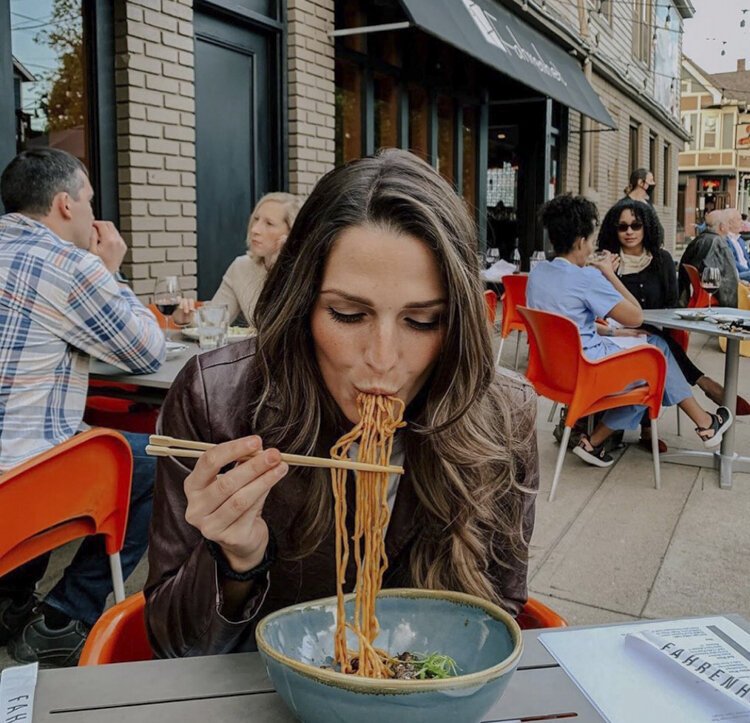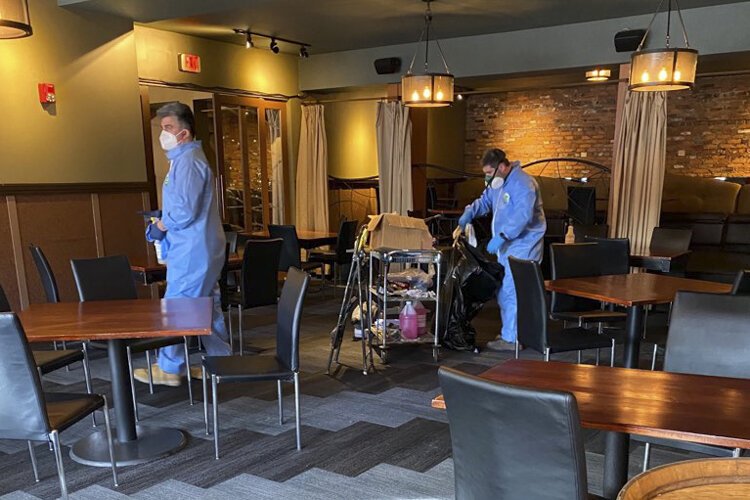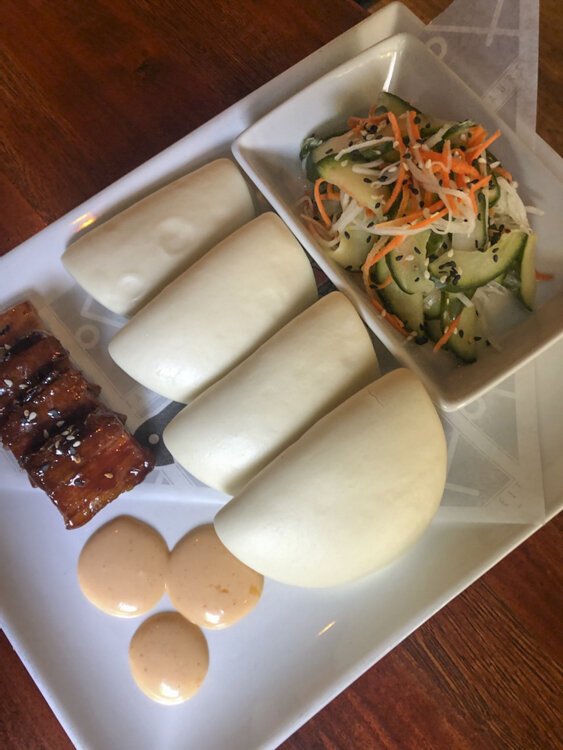Culinary Crisis: Chef Rocco Whalen reflects on dark times, is hopeful for a brighter future
Chef and restaurateur Rocco Whalen, owner of Fahrenheit, 2417 Professor Ave. in Tremont, has seen a lot in his culinary career. But when COVID-19 hit Cleveland and he was forced to close the doors to his restaurant, he says it was the biggest challenge of his career.
“I’ve been through 9/11, the 2003 blackout, and the housing crisis in 2009,” Whalen says. “But this, by far, is the greatest challenge I’ve been through in my 20-year career.”
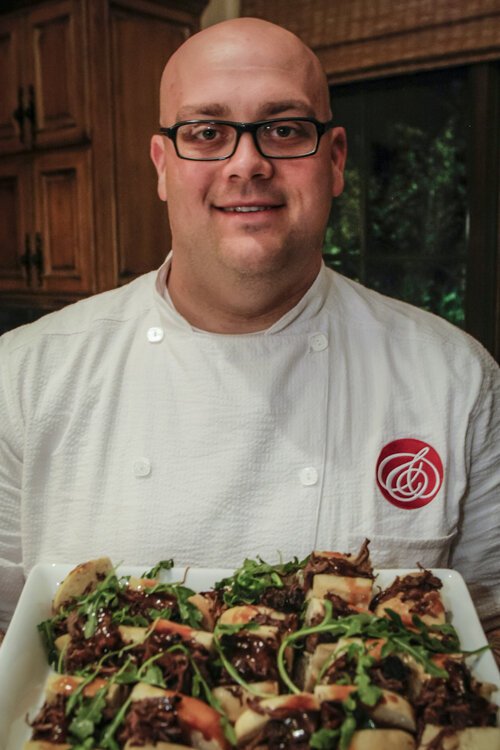 Chef Rocco WhalenLike most of the world, Whalen was in shock at first. But he’s a problem solver and immediately started thinking of how Fahrenheit—in both the Cleveland and Charlotte, N.C. locations—would survive.
Chef Rocco WhalenLike most of the world, Whalen was in shock at first. But he’s a problem solver and immediately started thinking of how Fahrenheit—in both the Cleveland and Charlotte, N.C. locations—would survive.
“It was pretty crazy,” he recalls. “It became about finding a way to survive, adapt and overcome.”
While Whalen was able to keep key people on staff during the shutdown, a few staff members were concerned about COVID-19.
“Safety was a concern for them,” Whalen remarks. “A few of my staff members had questions, and they were questions I couldn’t answer yet. It is a fluid time, and I don’t have all the answers yet.”
During the shutdown Whalen began readying his restaurant for a safe reopening—moving tables, installing plexiglass, and placing sanitizing stations wherever he could. “Believe it or not, I’ve kept myself busy, because that’s the kind of guy I like to be,” he says. “I was creating projects [for myself].”
So, when Whalen reopened the Cleveland Fahrenheit on May 21—the moment Ohio allowed it—he was prepared. “I was not nervous—I was concerned about the serving staff, I was concerned about the customers,” he says. “But we were applying the right PPE, using UV light, and we used chemical fogs in the HVAC.”
And, he says, customers are beginning to return. “I’ve been around in Tremont for 19 years,” he says. “I believe customers will come when they feel safe.”
Whalen says the servers are trained in what kind of flatware to use and whether to put glassware on the table—keeping in mind that experts now say the virus is more airborne than on surfaces.
“The buss staff have more tableside work to do in between [guests],” Whalen says. “They have to Lysol all the chairs, tables, and bases.” He says he only has four tables inside, buffered with space and plexiglass, as opposed to the 12 her normally has. “Every little bit helps when you’re only at 50% [capacity],” he says.
One move that helped the business was opening the patio—always a popular option this time of year. “Cleveland is an al fresco town,” Whalen says. “We’re cooped up in the winter, so when the umbrellas can fly on the patio, they do.”
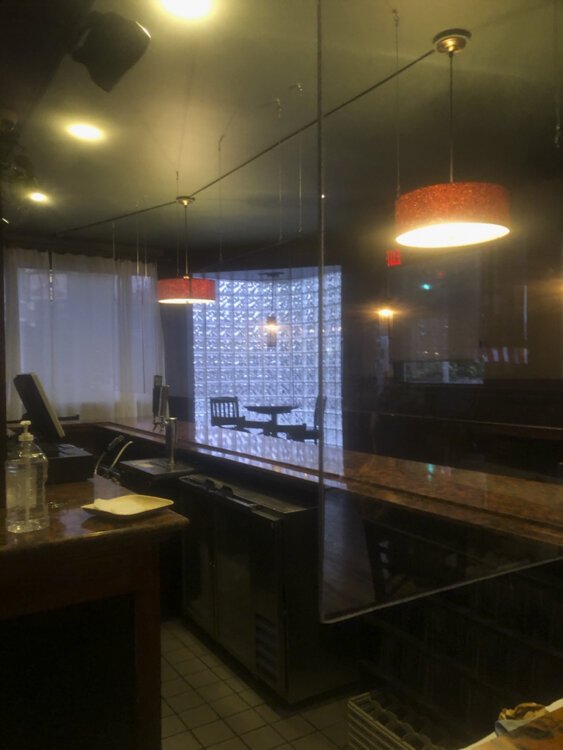 Plexiglas and COVID safety precautions at FahrenheitWhalen has installed a new barrier fence on the patio and there currently is no valet service at Fahrenheit, and all staff are required to wear masks and other PPE. “One hundred percent we’re wearing them from tip-to-toe,” Whalen says of the protective gear. “It’s part of the uniform, and I think it will be part of the uniform in the future.”
Plexiglas and COVID safety precautions at FahrenheitWhalen has installed a new barrier fence on the patio and there currently is no valet service at Fahrenheit, and all staff are required to wear masks and other PPE. “One hundred percent we’re wearing them from tip-to-toe,” Whalen says of the protective gear. “It’s part of the uniform, and I think it will be part of the uniform in the future.”
Although Whalen is watchful of the future of Cleveland’s restaurants, he also thinks it will be a slow go. “The industry is going to struggle for a time period,” he warns. “If I were a betting man, I’d say at least 12 months.”
The upcoming year will mean a lot of adaption and reinvention for restaurants, he says. “I’m fearful for anyone who has to open in this situation with a new format, a new concept,” he says. “You can only get that thunder once.”
But Fahrenheit’s traffic has continued to improve in the month since it re-opened, and Whalen makes a point to be optimistic. “I put a positive hat on, and I make it inviting for everyone who walks through.”
Regardless of the future, Whalen says he remains a guardian of the city—especially after the recent racial tensions, violence, and civil unrest.
“I’m hopeful—I wear this city as a badge on my sleeve,” he says. “I’m a fan of Cleveland, and I hurt for everything going on in the community. I hurt for the people in this city.”


